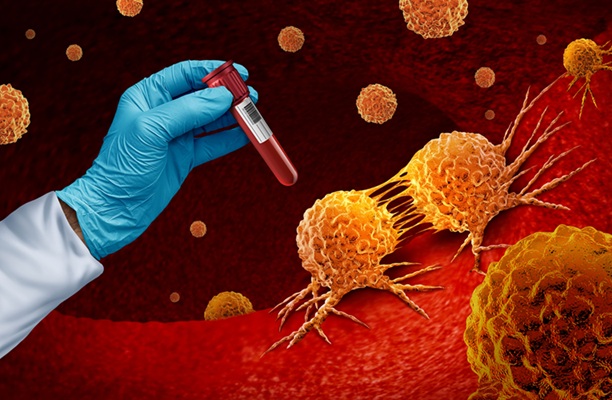Revolutionary Blood Test Detects 30 Different Types of Cancers with 98% Accuracy
Posted on 29 Apr 2025
With cancer expected to become the leading cause of global mortality by 2030, early detection remains the most effective strategy to reduce death rates. Current screening methods only cover five types of cancer and are hindered by high false-positive rates. Now, a new blood test has the potential to detect 30 different types of cancer, including pancreatic, lung, and ovarian cancers, with an average accuracy of 98.4%.
The study, conducted by a multi-institutional research team led by HCG Manavata Cancer Centre (HCGMCC, Nashik, India), employed a novel serum metabolome-based diagnostic platform powered by machine learning to identify specific metabolic signatures linked to cancer. Unlike other multi-cancer early detection (MCED) tests that depend on detecting tumor DNA or cells, which are often limited by low biomarker concentrations, this new test focuses on capturing changes in metabolites. This provides a more reliable and sensitive result, particularly for detecting cancers at early stages. Published in Cancer Reports, the study included 6,445 participants, including over 2,800 confirmed, treatment-naïve cancer patients across four stages of the disease. Serum samples were analyzed using high-resolution mass spectrometry, and the data were processed through a proprietary Cancer Detection Artificial Intelligence (CDAI) algorithm. The platform demonstrated consistently high sensitivity, even in early-stage (Stage I/II) cancers, a feat that current diagnostic methods rarely achieve.

The test, which profiles more than 8,000 metabolites in blood serum, exhibited near-perfect accuracy across all stages (I–IV) and age groups (20 to 80+ years). Significantly, it identified Stage I cancers with 98.9% sensitivity, filling a crucial gap in oncology, where most cancers are diagnosed too late for effective treatment. The model's robustness was confirmed across various age groups, maintaining detection sensitivity above 96% across all demographics and cancer stages. Plans are currently in progress to initiate larger, multi-center clinical trials, with the goal of eventually bringing the test to commercial use. Efforts are also underway to integrate tissue-of-origin prediction capabilities, which would further assist physicians in initiating accurate follow-up diagnostics and treatment strategies.
“The new test, validated in a single-blinded trial, reduces over-diagnosis risks while expanding coverage to thirty malignancies,” said Dr. Raj Nagarkar, Managing Director and Chief of Surgical Oncology and Robotic Services, HCGMCC, who led the research team. “We believe this test has the potential to redefine cancer screening, especially in low- and middle-income countries like India. Its scalability, accuracy and ability to detect cancers early could enable Governments and healthcare providers to offer timely intervention, which ultimately saves lives and reduces the cost burden of late-stage treatment.”
Related Links:
HCGMCC













